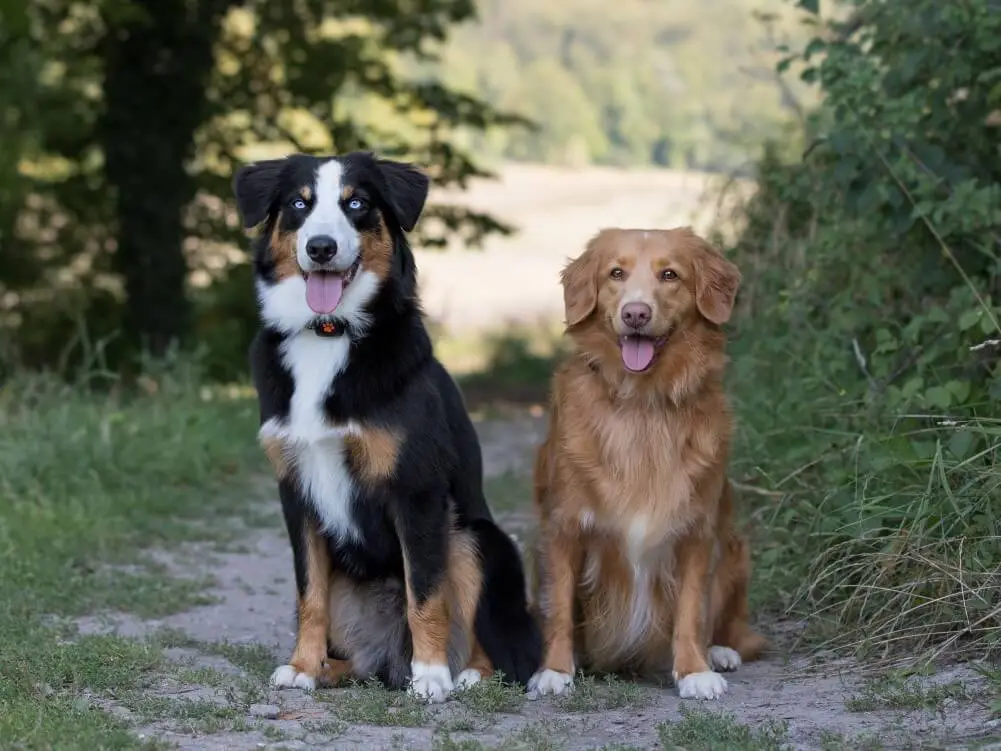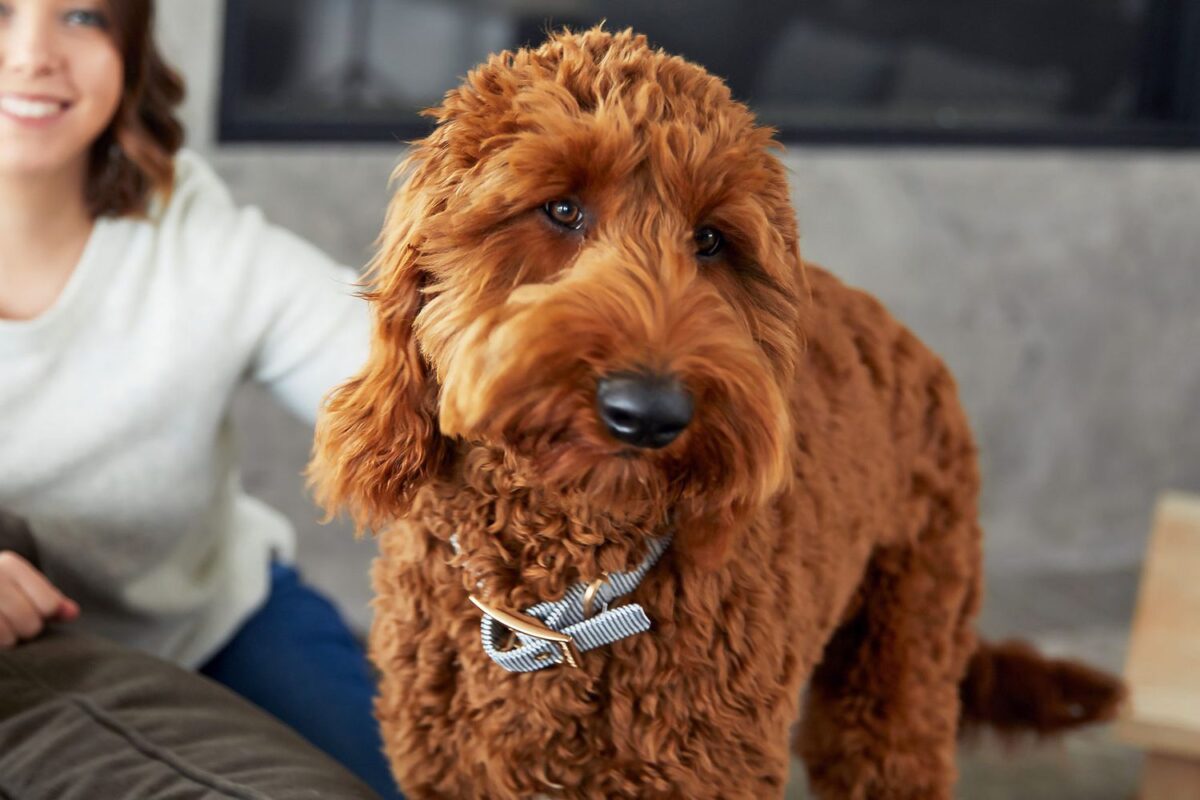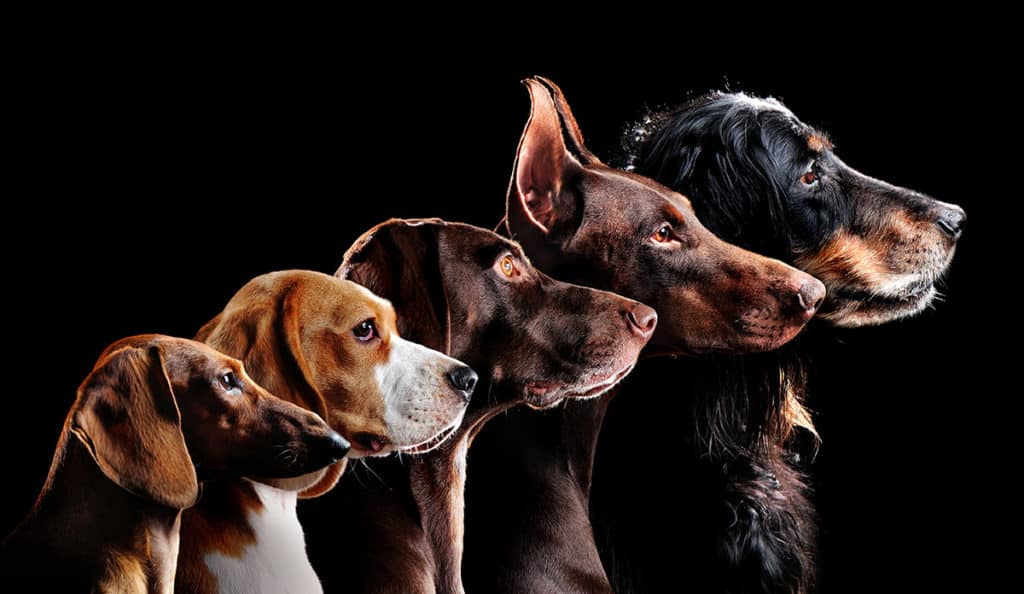Top 5 Friendliest Dog Breeds: Lovable Companions for Every Home
Discover the top 15 friendliest dog breeds renowned for their love and companionship. Find the perfect pet for your lifestyle that brings joy to your family or living space.
Looking for a furry friend that’ll shower you with love and affection? You’re not alone! Many dog lovers are on the hunt for the friendliest breeds to welcome into their homes. These sociable canines bring joy, companionship, and a sense of well-being to their human counterparts.
In this text, we’ll explore the top 15 friendliest dog breeds, highlighting their unique characteristics and why they’re cherished by dog lovers worldwide. From the ever-popular Labrador Retriever to the charming Pug, we’ll jump into what makes these breeds stand out in terms of sociability, affection, and gentle disposition. Whether you’re a family, single, or active senior, we’ve got you covered with breeds that are adaptable, eager to please, and easy to train.
Understanding Friendly Dog Breeds
Friendly dog breeds share common traits that make them ideal companions for various lifestyles. These characteristics contribute to their ability to form strong bonds with humans and other animals.
Characteristics of a Friendly Dog
Friendly dogs exhibit several key traits that set them apart:
- Sociability: Friendly dogs eagerly seek out interaction with humans and other animals. They’re comfortable in social settings and often thrive on attention.
- Affectionate nature: These breeds show a natural inclination to express love and affection towards their owners and family members.
- Gentle temperament: Friendly dogs typically have a calm and patient disposition, making them suitable for families with children or elderly individuals.
- Adaptability: They adjust well to new environments and situations, reducing stress for both the dog and its owner.
- Trainability: Friendly breeds are often eager to please, making them receptive to training and commands.
- Non-aggressive behavior: These dogs are less likely to display aggressive tendencies, promoting a safe and harmonious household.
- Playfulness: Many friendly breeds enjoy interactive play, which strengthens the bond between dog and owner.
- Tolerance: Friendly dogs often exhibit a high tolerance for handling and various types of interaction.
- Empathy: Some breeds are known for their ability to sense and respond to human emotions, offering comfort when needed.
- Approachability: Friendly dogs typically have an inviting demeanor that makes them approachable to strangers and other animals.
These characteristics contribute to the overall friendliness of dog breeds, making them excellent companions for various households and lifestyles. It’s important to note that individual dogs within a breed may vary in temperament, and proper socialization and training play crucial roles in developing these friendly traits.
Top Friendliest Dog Breeds
Friendly dog breeds bring joy and companionship to their human families. These breeds are known for their sociable nature, affectionate disposition, and ability to form strong bonds with people and other animals.
Large Friendly Breeds
Large friendly breeds are often gentle giants, perfect for families and active individuals. Here are some of the most amiable large dog breeds:
- Labrador Retriever: Known for their warm and cheerful nature, Labs are highly social and love to please their owners. They excel in various roles, including guide dogs and search-and-rescue work.
- Golden Retriever: Friendly, playful, and smart, Golden Retrievers have a confident and cheery outlook. They’re great family pets and enjoy interacting with people and other animals.
- Bernese Mountain Dog: With a calm and sweet nature, Bernese Mountain Dogs are big cuddlers. They’re gentle and patient, making them perfect for families with children.
- Newfoundland: Often called “gentle giants,” Newfoundlands are known for their sweet temperament and patience with children.
- Irish Setter: Energetic and outgoing, Irish Setters are affectionate dogs that thrive on human companionship.
Small Friendly Breeds
Small friendly breeds are ideal for those living in apartments or with limited space. These breeds are known for their affectionate nature and adaptability:
- Pembroke Welsh Corgi: Even though their small size, Corgis are bold, friendly, and willing to interact with anyone. They’re intelligent and easy to train.
- Cavalier King Charles Spaniel: Known for their gentle and affectionate nature, these dogs are excellent companions for families and seniors alike.
- Pug: With their wrinkled faces and big personalities, Pugs are charming and sociable. They’re known for their love of human companionship.
- Beagle: Friendly and curious, Beagles are great with children and other pets. They have a merry disposition and love to explore.
- Boston Terrier: Often called “American Gentlemen,” Boston Terriers are friendly, lively, and get along well with people of all ages.
These small breeds prove that friendliness comes in all sizes, offering companionship and joy in compact packages.
Popular Friendly Breeds for Families
When seeking a friendly dog for your family, certain breeds stand out for their affectionate nature and gentle temperament. Here are three popular breeds known for their family-friendly qualities:
Golden Retriever
Golden Retrievers are the epitome of friendly, playful, and intelligent dogs. Their confident and cheerful outlook makes them excellent companions for families of all sizes. These dogs are always eager to engage with people and other animals, making them ideal for households with children or other pets.
Golden Retrievers excel in various activities, from fetch to tug-of-war, and their adaptable nature allows them to fit seamlessly into different family dynamics. Their warm demeanor and patient disposition make them popular choices as therapy dogs. With their thick, golden coats and expressive eyes, these dogs aren’t just friendly – they’re also visually appealing and bring joy to everyone they meet.
Labrador Retriever
Labrador Retrievers have consistently ranked among the most popular breeds in the United States for decades, and for good reason. These dogs are renowned for their warm, cheerful personalities and even temperaments. Labs are bred to be companions, and their love for human interaction is evident in their daily behavior.
Highly social and affectionate, Labrador Retrievers enjoy cuddling and are always ready to welcome newcomers with enthusiasm. Their trainability and eagerness to please make them excellent family pets, adapting well to various household dynamics. Labs are also known for their energy and love of outdoor activities, making them perfect companions for active families who enjoy swimming, hiking, or playing in the park.
Beagle
Beagles are compact, curious, and energetic hounds that make excellent family dogs. Their friendly nature and playful disposition make them ideal companions for households with children. Beagles are known for their intelligence and keen sense of smell, traits that contribute to their adventurous spirit.
These dogs require plenty of exercise and mental stimulation to keep them happy and healthy. Their short, easy-to-care-for coat is a bonus for families looking for a low-maintenance pet. Beagles are social animals and enjoy being part of family activities, whether it’s a leisurely walk in the park or a backyard BBQ. Their expressive eyes and floppy ears add to their charm, making them irresistible to dog lovers of all ages.
Friendly Breeds for Apartment Living
For those living in apartments, friendly dog breeds that adapt well to smaller spaces are ideal. These breeds offer companionship and affection while thriving in urban environments. Let’s explore three popular apartment-friendly dog breeds known for their sociable nature.
Cavalier King Charles Spaniel
Cavalier King Charles Spaniels are renowned for their gentle and friendly demeanor, making them excellent companions for apartment dwellers. These small, affectionate dogs were bred as lap dogs and thrive on human attention. Their compact size suits apartment living, though they still require about 30 minutes of daily exercise.
Cavaliers are particularly good with children and other pets, adapting well to various household dynamics. They’re known for their sweet temperament and eagerness to please, which makes them easy to train. But, they don’t tolerate long periods of solitude well, potentially developing separation anxiety if left alone frequently.
Their silky coat needs regular grooming, but their exercise needs are moderate, making them suitable for less active owners. Cavaliers often make wonderful therapy dogs due to their calm and loving nature, bringing joy to those around them.

French Bulldog
French Bulldogs are affectionate and adaptable, making them ideal for apartment living. These compact, muscular dogs have a charming personality that endears them to many urban dwellers. Their short, easy-to-maintain coat is a bonus for those with limited time for grooming.
Frenchies are known for their sociable nature and love of human companionship. They’re generally good with children and other pets, making them suitable for various household compositions. Their low exercise requirements align well with apartment living, as they don’t need extensive outdoor space to stay happy and healthy.
But, French Bulldogs can be prone to certain health issues, particularly respiratory problems due to their flat faces. They’re sensitive to extreme temperatures, so air conditioning is often necessary in warmer climates. Even though these considerations, their friendly and adaptable nature makes them popular choices for apartment dwellers seeking a lovable companion.
Pug
Pugs are charismatic and friendly dogs that adapt well to apartment living. These small, compact breeds are known for their wrinkled faces and playful personalities. Their affectionate nature and love for human companionship make them excellent apartment companions.
Pugs have moderate exercise needs, typically satisfied with short walks and indoor play sessions. This makes them suitable for less active owners or those with limited outdoor space. Their adaptable nature allows them to thrive in various living situations, from small apartments to larger homes.
Known for their sociable temperament, Pugs generally get along well with children, other pets, and strangers. Their expressive faces and comical antics often bring joy and laughter to their families. But, like French Bulldogs, Pugs can face health challenges related to their flat faces, including breathing difficulties and sensitivity to heat.
Even though these considerations, Pugs remain popular choices for apartment dwellers due to their friendly nature, compact size, and ability to adapt to smaller living spaces. Their low-maintenance coat and moderate exercise needs make them manageable for busy urban lifestyles.
Unexpected Friendly Dog Breeds
When considering friendly dog breeds, some unexpected contenders stand out. These breeds may not be the first that come to mind, but they offer surprising levels of affection and sociability. Let’s explore three breeds known for their friendly dispositions even though their unique characteristics.
Great Dane
Great Danes, often called “gentle giants,” defy expectations with their friendly nature even though their imposing size. These large dogs are known for their calm and affectionate personalities, making them excellent companions for families and individuals alike. Great Danes excel in social situations, ranking among the top 10 breeds for playing well with other dogs. In fact, 80.5% of Great Dane owners report that their dogs always or often play well with other canines, tying with Bernese Mountain Dogs for this trait.
While not as avid cuddlers as some smaller breeds, 73% of Great Dane owners say their dogs enjoy cuddling with them and others. These gentle giants also rank highly in their willingness to accept treats and pets from strangers, with 68.5% of owners reporting this behavior. Their friendly demeanor is further evidenced by 88% of owners rating their Great Danes as very or somewhat friendly, placing them in the top 10 for overall friendliness.
Irish Setter
Irish Setters are renowned for their friendly and energetic personalities, making them a delightful surprise for those seeking an affectionate companion. These vibrant dogs are known for their enthusiastic approach to life and their love for human interaction. Their friendly nature is so pronounced that they often struggle to contain their excitement, which can sometimes lead to accidental bumps or knocks, especially with small children.
Irish Setters thrive on attention and exercise, requiring plenty of both to maintain their happy and well-behaved demeanor. Their boundless energy and affectionate nature make them excellent playmates for active families or individuals who enjoy outdoor activities. Early training is recommended to channel their exuberance positively and ensure they develop good manners. Even though their high energy levels, Irish Setters are known for their gentle and loving disposition, forming strong bonds with their human families and often getting along well with other pets.
Staffordshire Bull Terrier
Staffordshire Bull Terriers, often called Staffies, are a breed that surprises many with their friendly and affectionate nature. Even though their muscular build and sometimes intimidating appearance, Staffies are known for their love of human companionship and their gentle disposition, especially with children. This breed has earned the nickname “nanny dog” due to their patience and protective nature around young family members.
Staffies are typically confident and sociable dogs, eager to make friends with both humans and other animals when properly socialized. Their friendly nature is complemented by their intelligence and desire to please, making them responsive to training and capable of excelling in various dog sports and activities. While they may have a strong prey drive, early socialization and consistent training can help mitigate this instinct. Staffies are known for their loyalty and affection towards their families, often seeking physical closeness and enjoying cuddling sessions with their owners.
Training and Socialization for Friendly Dogs
Training and socialization play crucial roles in developing and maintaining a dog’s friendly disposition. Even breeds known for their amiable nature require proper guidance to reach their full potential as companionable pets.
The Importance of Early Socialization
Early socialization is key to raising a friendly dog. Exposing puppies to various stimuli during their critical developmental period (between 3 and 16 weeks) helps them become well-adjusted adults:
- People: Introduce puppies to individuals of different ages, genders, and appearances
- Animals: Allow positive interactions with other dogs and pets
- Environments: Expose puppies to diverse settings, such as parks, streets, and vehicles
- Sounds: Familiarize them with common noises like traffic, appliances, and thunderstorms
Positive Reinforcement Training Techniques
Positive reinforcement is an effective method for teaching dogs desirable behaviors:
- Reward-based training: Use treats, praise, or toys to reinforce good behavior
- Clicker training: Employ a clicking sound to mark correct actions
- Consistency: Maintain uniform rules and expectations across all family members
- Patience: Allow time for dogs to learn and adapt to new commands
Socialization Exercises for Adult Dogs
While early socialization is ideal, adult dogs can still benefit from ongoing socialization efforts:
- Structured playdates with well-behaved dogs
- Visits to dog-friendly establishments
- Enrollment in obedience classes or dog sports
- Regular walks in new environments
Addressing Behavioral Issues
Some dogs may exhibit unfriendly behaviors due to fear, anxiety, or past experiences:
- Identify triggers: Observe what causes the dog’s negative reactions
- Gradual desensitization: Slowly expose the dog to triggers in a controlled manner
- Counter-conditioning: Associate positive experiences with previously feared stimuli
- Professional help: Consult a certified dog behaviorist for severe cases

Maintaining Friendly Behavior
Ongoing efforts are necessary to preserve a dog’s friendly nature:
- Regular exercise: Provide sufficient physical and mental stimulation
- Consistent training: Reinforce good behaviors throughout the dog’s life
- Positive experiences: Continue exposing the dog to new people, animals, and situations
- Health care: Address any medical issues that may affect behavior
By implementing these training and socialization strategies, owners can help their dogs become and remain friendly, well-adjusted companions, regardless of breed.
Choosing the Right Friendly Breed for Your Lifestyle
When selecting a friendly dog breed, it’s crucial to consider your lifestyle, living situation, and personal preferences. We’ve compiled essential factors to help you make an well-informed choice:
Energy Level Compatibility
Different friendly dog breeds have varying energy levels:
- High-energy breeds: Labrador Retrievers, Golden Retrievers, Irish Setters
- Moderate-energy breeds: Beagles, Pembroke Welsh Corgis
- Low-energy breeds: Cavalier King Charles Spaniels, French Bulldogs, Pugs
Match the dog’s energy level with your activity level and available time for exercise. High-energy breeds require daily walks, playtime, and mental stimulation, while low-energy breeds are content with shorter walks and indoor activities.
Space Considerations
Your living space influences breed selection:
- Large homes with yards: Great Danes, Bernese Mountain Dogs, Golden Retrievers
- Apartments or small homes: Cavalier King Charles Spaniels, French Bulldogs, Pugs
Ensure your chosen breed has adequate space to move comfortably and exercise within your home environment.
Family Dynamics
Consider your family structure when choosing a friendly breed:
- Families with children: Labrador Retrievers, Golden Retrievers, Beagles
- Singles or couples: French Bulldogs, Pugs, Cavalier King Charles Spaniels
- Active seniors: Pembroke Welsh Corgis, Cavalier King Charles Spaniels
Some breeds, like Staffordshire Bull Terriers, are known for their gentleness with children, making them excellent family dogs.
Time Commitment
Assess your availability for training, grooming, and companionship:
- High-maintenance breeds: Golden Retrievers, Labrador Retrievers (require regular grooming and exercise)
- Low-maintenance breeds: French Bulldogs, Pugs (require less grooming and exercise)
All dogs need attention, training, and socialization, but some breeds demand more time and effort than others.
Allergies and Shedding
If allergies are a concern, consider hypoallergenic or low-shedding breeds:
- Hypoallergenic options: Poodles, Bichon Frises
- Low-shedding breeds: French Bulldogs, Pugs
These breeds produce less dander and are suitable for allergy-prone individuals.
Trainability and Intelligence
Some friendly breeds are easier to train than others:
- Highly trainable: Labrador Retrievers, Golden Retrievers, Poodles
- Moderately trainable: Beagles, Pembroke Welsh Corgis
- Independent thinkers: French Bulldogs, Pugs
Consider your experience level and patience when selecting a breed based on trainability.
Climate Adaptability
Your local climate affects breed suitability:
- Cold-weather breeds: Bernese Mountain Dogs, Great Danes
- Hot-weather breeds: Beagles, French Bulldogs
Ensure your chosen breed can comfortably adapt to your region’s climate.
Noise Tolerance
Consider your living situation and noise sensitivity:
- Quiet breeds: Great Danes, Cavalier King Charles Spaniels
- Vocal breeds: Beagles, Pembroke Welsh Corgis
Choose a breed that aligns with your noise preferences and living environment.
By carefully evaluating these factors, you’ll be better equipped to select a friendly dog breed that seamlessly integrates into your lifestyle, ensuring a harmonious and fulfilling relationship with your new canine companion.
Conclusion
Friendly dog breeds bring joy and companionship to countless homes worldwide. We’ve explored various breeds known for their sociable nature adaptable to different lifestyles. Remember that each dog is unique and proper training and socialization play crucial roles in developing friendly traits. By considering your lifestyle energy level and living space you’ll find the perfect furry friend to welcome into your family. Whether you choose a gentle giant or a pocket-sized companion these friendly breeds are sure to fill your life with love laughter and endless tail wags.

